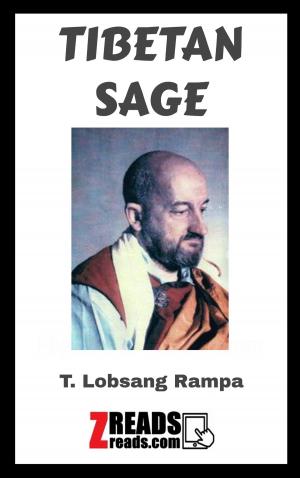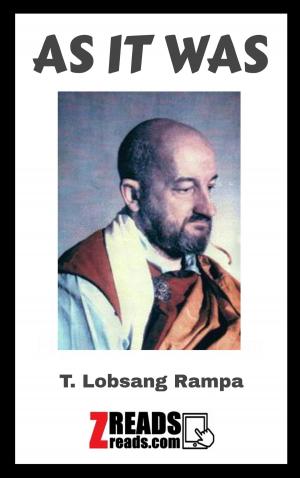HOW TO LIVE 24 HOURS A DAY
Two Book Set Included And MENTAL EFFICIENCY
Nonfiction, Religion & Spirituality, Philosophy, Humanism, New Age, New Thought, Mind & Body| Author: | Arnold Bennett, James M. Brand | ISBN: | 1230003058244 |
| Publisher: | ZREADS | Publication: | January 31, 2019 |
| Imprint: | Language: | English |
| Author: | Arnold Bennett, James M. Brand |
| ISBN: | 1230003058244 |
| Publisher: | ZREADS |
| Publication: | January 31, 2019 |
| Imprint: | |
| Language: | English |
HOW TO LIVE 24 HOURS A DAY
Two Book Set
Included
And
MENTAL EFFICIENCY
And Other Hints To Men And Women
By Arnold Bennett
Book 1.
HOW TO LIVE 24 HOURS A DAY
Synopsis
In this book, Bennett tackles the problem of workers the world over, who spend most of their lives working jobs they hate and don’t find time to do anythign else, other than sleep and eat. He urges these “salarymen” to seize their extra time, and make the most of it to improve themselves. Extra time could be found at the beginning of the day, by waking up early, and on the ride to work, on the way home from work, in the evening hours, and especially during the weekends. During this time, he prescribed improvement measures such as reading great literature, taking an interest in the arts, reflecting on life, and learning self-discipline. Bennett wrote that time is the most precious of commodities. He said that many books have been written on how to live on a certain amount of money each day. And he added that the old adage “time is money” understates the matter, as time can often produce money, but money cannot produce more time. Time is extremely limited, and Bennett urged others to make the best of the time remaining in their lives.
Originally published in 19110.
Book 2.
MENTAL EFFICIENCY
And Other Hints To Men And Women
By Arnold Bennett
Synopsis
This book on Mental Efficiency was typical of the self-improvement essays and books that Arnold Bennett produced alongside his outstanding fiction. Even all these years later, it still makes a lot of sense, and modern readers will be amused and instructed!
Bennett (1867-1931) was a British novelist. He was born in a modest house in Hanley in the Potteries district of Staffordshire. At age 21 he went to London as a solicitor's clerk. He won a literary competition in Tit Bits magazine in 1889 and was encouraged to take up journalism full time. From 1900 he devoted himself full time to writing, giving up the editorship and writing much serious criticism, and also theatre journalism, one of his special interests. In 1902 Anna of the Five Towns, the first of a succession of stories which detailed life in the Potteries, appeared. In 1908 The Old Wives' Tale was published, and was an immediate success throughout the English-speaking world. His most famous works are the Clayhanger (1910) trilogy and The Old Wives' Tale. These books draw on his experience of life in the Potteries, as did most of his best work. Among his other books are: The Grand Babylon Hotel (1902), The Grim Smile of the Five Towns (1907), Hilda Lessways (1911), The Author's Craft (1914), The Lion's Share (1916), and The Roll-Call
Originally published in 1919.
"The best cure for worry, depression, melancholy, brooding, is to go deliberately forth and try to lift with one's sympathy the gloom of somebody else."
-Arnold Bennett
File information:
File size (Digital) (268KB)
Books (2)
Biography (Yes)
Page count (8.5x11) (121)
Word count (52,315)
Font size (12pt)
HOW TO LIVE 24 HOURS A DAY
Two Book Set
Included
And
MENTAL EFFICIENCY
And Other Hints To Men And Women
By Arnold Bennett
Book 1.
HOW TO LIVE 24 HOURS A DAY
Synopsis
In this book, Bennett tackles the problem of workers the world over, who spend most of their lives working jobs they hate and don’t find time to do anythign else, other than sleep and eat. He urges these “salarymen” to seize their extra time, and make the most of it to improve themselves. Extra time could be found at the beginning of the day, by waking up early, and on the ride to work, on the way home from work, in the evening hours, and especially during the weekends. During this time, he prescribed improvement measures such as reading great literature, taking an interest in the arts, reflecting on life, and learning self-discipline. Bennett wrote that time is the most precious of commodities. He said that many books have been written on how to live on a certain amount of money each day. And he added that the old adage “time is money” understates the matter, as time can often produce money, but money cannot produce more time. Time is extremely limited, and Bennett urged others to make the best of the time remaining in their lives.
Originally published in 19110.
Book 2.
MENTAL EFFICIENCY
And Other Hints To Men And Women
By Arnold Bennett
Synopsis
This book on Mental Efficiency was typical of the self-improvement essays and books that Arnold Bennett produced alongside his outstanding fiction. Even all these years later, it still makes a lot of sense, and modern readers will be amused and instructed!
Bennett (1867-1931) was a British novelist. He was born in a modest house in Hanley in the Potteries district of Staffordshire. At age 21 he went to London as a solicitor's clerk. He won a literary competition in Tit Bits magazine in 1889 and was encouraged to take up journalism full time. From 1900 he devoted himself full time to writing, giving up the editorship and writing much serious criticism, and also theatre journalism, one of his special interests. In 1902 Anna of the Five Towns, the first of a succession of stories which detailed life in the Potteries, appeared. In 1908 The Old Wives' Tale was published, and was an immediate success throughout the English-speaking world. His most famous works are the Clayhanger (1910) trilogy and The Old Wives' Tale. These books draw on his experience of life in the Potteries, as did most of his best work. Among his other books are: The Grand Babylon Hotel (1902), The Grim Smile of the Five Towns (1907), Hilda Lessways (1911), The Author's Craft (1914), The Lion's Share (1916), and The Roll-Call
Originally published in 1919.
"The best cure for worry, depression, melancholy, brooding, is to go deliberately forth and try to lift with one's sympathy the gloom of somebody else."
-Arnold Bennett
File information:
File size (Digital) (268KB)
Books (2)
Biography (Yes)
Page count (8.5x11) (121)
Word count (52,315)
Font size (12pt)















